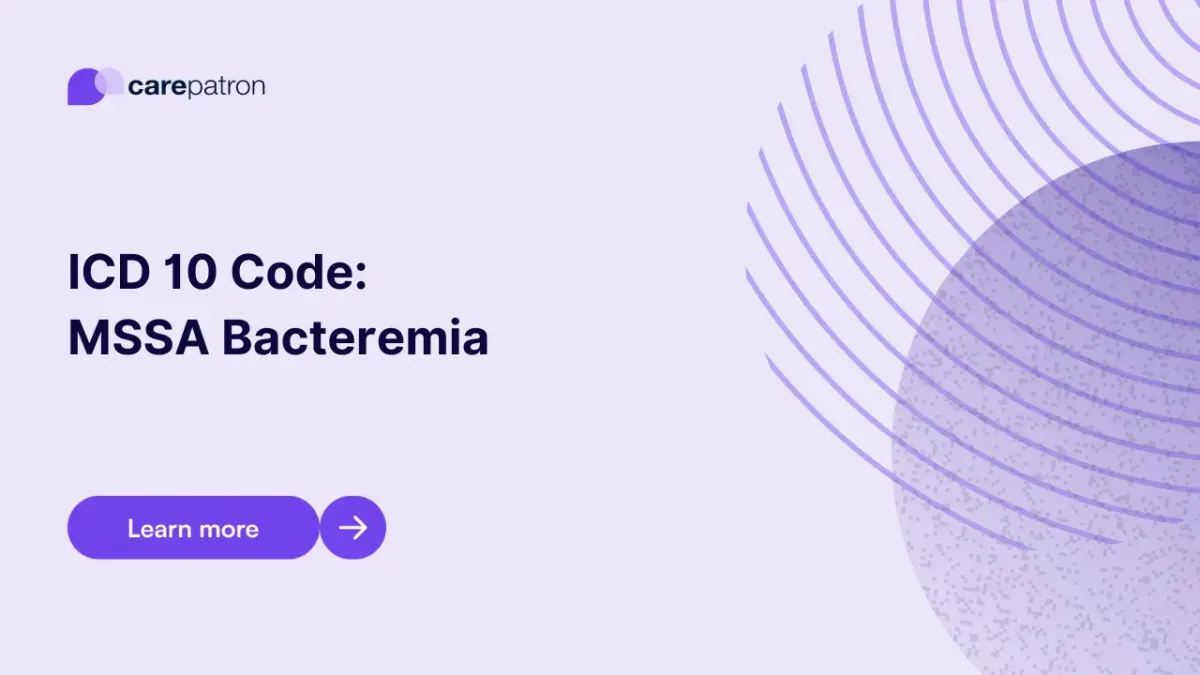
MSSA Bacteremia ICD-10-CM Codes
Read this short guide and learn about MSSA Bacteremia ICD codes you can use.
Use Code
Commonly asked questions
Healthcare professionals will conduct physical examinations to check if the patient has low blood pressure, a heightened heart rate, trouble breathing, and a fever. They will also conduct blood tests and cultures to determine whether MSSA or other types of bacteria are causing the bacteremia and any other problems that may arise due to it.
Administering and prescribing antibiotics is the primary way of treating MSSA Bacteremia. Typically, two to four weeks of antibiotic therapy are implemented.
MSSA stands for Methicillin-susceptible Staphylococcus aureus. MSRA stands for Methicillin-resistant Staphylococcus aureus. The former can be treated with antibiotics, while the latter is resistant to many antibiotics. Antibiotics are still used to treat MSRA despite its resistance to many, but to determine which antibiotics can be used, healthcare professionals must first conduct blood cultures.
EHR and practice management software
Get started for free
*No credit card required
Free
$0/usd
Unlimited clients
Telehealth
1GB of storage
Client portal text
Automated billing and online payments
